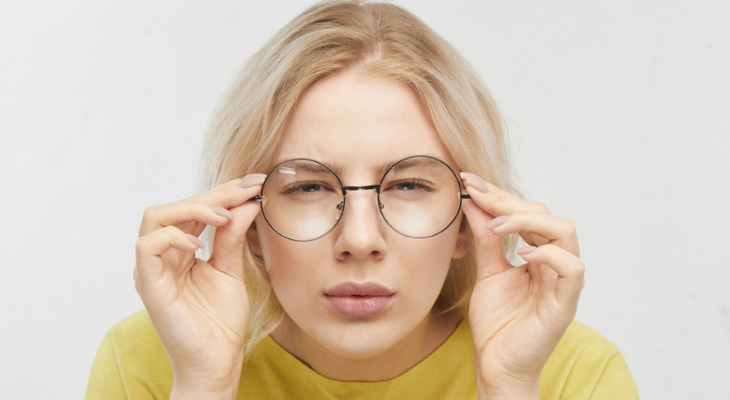
Vision Therapy Exercises You Can Do From Home
Are you struggling with double vision, headaches, motion sickness, poor eye-hand coordination, focusing problems, poor depth perception or other vision issues? Trying a few of these vision therapy exercises could help you improve your vision.
What Is Vision Therapy?
Your eyes aren't the only parts of your body necessary for good vision. Seeing requires a coordinated effort between your eyes, your brain and the muscles that control your eyes. If there's an issue in any of these areas, you could develop a problem with your vision.
Vision problems can occur even if you have 20/20 vision. Although you may be able to read the eye chart perfectly, you could still experience double vision, have difficulty tracking moving objects, or notice that things look blurry when you try to read.
During vision therapy, you'll work with a vision therapist to strengthen all aspects of your vision. Therapy often involves games, activities, special lenses and other tools that slowly but surely improve the connection between your brain and your eyes.
Improving Your Vision at Home
Whether you're currently working with a vision therapist or want to improve your vision at home, you'll find plenty of ways to enhance your vision. Vision therapy exercises and activities offer a simple way to tackle these vision problems:
- Visual Memory Issues. Games that ask you to match two identical objects improve your visual memory. Visual memory is used to recall the things you've seen and can help you remember the details of a report you just read. It's also essential for mastering reading, math and handwriting.
- Poor Eye-Hand Coordination. Eye-hand coordination is important for everything from playing sports to writing legibly. If poor eye-hand coordination is a problem for you or your children, try painting, coloring, sewing playing catch, or challenging a friend or family to a game of Whac-A-Mole, catch or cornhole. Since eye-hand coordination worsens with age, according to Harvard Health Publishing, these activities just might help you avoid coordination issues.
- Trouble Following (Tracking) Objects. Do you frequently lose your place when reading? The problem could occur if you have trouble tracking objects smoothly with your eyes. Other signs of a tracking problem include trouble catching a ball because you can't tell where it will land, feeling tired after reading for a short period of time or missing an entire line of text. Paper mazes, puzzles, playing catch or drawing could help you improve your tracking skills.
Other Activities Ideal for Improving Vision
Incorporating one of these options in your daily routine could also help you fine-tune your vision:
- Marsden Ball. Vision therapy sessions at the vision therapists office often include activities with a Marsden ball. The small ball is covered with letters or numbers and attached to the ceiling with a string. Marsden ball therapy can strengthen motor skills and improve focus, tracking and balance. If you want to improve your tracking skills, try to hit a specific letter or number as the ball passes by you. You can buy Marsden balls online or make your own using a tennis ball, baseball or another small ball.
- Video Games. Video games aren't just mindless entertainment. Many of them also help improve eye-hand coordination, peripheral vision, tracking, focusing and other essential vision skills. 3D stereograms, like those found on the Eyetricks website, improve your eye-teaming skills. Online matching games strengthen virtual memory and visual discrimination skills, while games that involve catching falling items, shooting or popping bubbles enhance eye tracking skills.
- Virtual Reality Games. Virtual reality games offer plenty of thrills and challenges while simultaneously boosting your vision. The technology is particularly helpful for people who have amblyopia according to a research study published in BMC Ophthalmology in 2017. Amblyopia occurs when the brain ignores the input from one eye, causing poor depth perception, blurry or double vision and the need to tilt the head to see clearly. The best corrected visual acuity improved to 20/40 after eight virtual reality sessions in 47% of study participants.
Try some of these exercises at home, then give us a call when you're ready to schedule a comprehensive eye exam and vision therapy consulation.
Sources:
Harvard Health Publishing: Activities to Sharpen Your Eye-Hand Coordination, 9/1/2021
American Optometric Association: Video Game Vision Therapy, 2/7/2018
